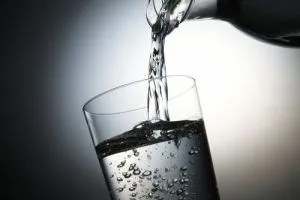
It is rather common for residents in both Arizona and Nevada to have hard water in their homes. Hard water is, simply, water that contains a large amount of minerals, including calcium and magnesium. Hard water is typically not a serious issue; however, it can still reduce your quality of life by changing everything from your appearance to the taste of your food. Testing your water is the only sure way to know exactly how “hard” it truly is.
If you are considering hiring a professional to test your water, give our team at Ambient Edge a call. We have decades of experience dealing with hard water and the issues that come with it. We also have the products and services you need right at our fingertips to treat your hard water and minimize its effects so you can enjoy a better quality of life.
How to Tell if You Have Hard Water
Hard water is fine for outside jobs, like washing the car or watering the lawn. It’s not so fine, however, for inside jobs, like cooking, bathing, and doing the dishes. There are two easy ways to determine whether you have hard water in your home. The first is if you notice calcium deposits, or “scale”, building up on your chrome faucets and showerhead. The second is when you are doing laundry.
Hard water makes laundry more difficult because it prohibits the laundry soap from lathering as well, which results in a less-than-thorough cleaning of your clothes. In fact, the minerals in the water actually get in the way, which prevents the water from mixing properly with the detergent. This can result in stains on your laundry, as well as hard and scratchy towels.
Your shower is another way to tell if you have hard water. Does your hair look better when you wash it while away on vacation than when you’re at home? Do you feel slick or even slippery sometimes after you’ve thoroughly washed up in the shower? This can be because you have hard water, which – just like the laundry – is getting in the way of a proper lather. This prohibits you from being able to clean yourself as thoroughly as you think you are.
How to “Soften” Hard Water
Hard water is not a health hazard. In fact, some believe it is actually healthier for you, due to the amount of minerals in it that you might not be otherwise consuming in your daily diet. However, if you drink or cook with hard water, you may find it tastes less than desirable. For this reason, as well as for the sake of your laundry and hair, you may be interested in treating, or “softening”, your water.
There are two main ways you can treat hard water. One is with a chemical softener; the other is with a mechanical filter.
Chemical Softener
Chemical softeners fall into two categories: precipitating and non-precipitating. Precipitating water softeners make it easier for your water to clean again, as the minerals in the water will no longer stop soap or laundry detergent from doing its job.
However, precipitating softeners bind with the minerals in the hard water to create a solid particle, that your laundry or dishwasher then washes away. Over time, though, some of those solid particles don’t wash away as they should, and they can build up on surfaces like the scale you were clearing away from hard water. Precipitating softeners can also make your water cloudier.
Non-precipitating softeners, on the other hand, still bind with the minerals in your water, but they do so in a solution, so they don’t build up over time. Calgon is actually a non-precipitating softener.
Mechanical Softener
A mechanical water softener is an actual physical machine you can have installed in your home to filter the amount of minerals that end up in your water. A mechanical water softener connects directly to your water supply.
Within the softener is a tank containing resin beads, which soak up the minerals in your water. Then a separate tank, called the brine tank, flushes the resin beads clean when they reach maximum capacity.
You change a filter, in a way, on the brine tank by adding new, specialized pellets whenever the old pellets wear out and can no longer clean the resin beads as well. You will need to figure out how much water you use in an average month to determine how much these pellets will run you on your monthly budget.
Need Help with a Hard Water Issue? Ambient Edge Can Help!
While hard water almost never signals an emergency, you may still need some assistance picking out a water softener. If that’s the case, or if you need your water tested, give our team at Ambient Edge a call, or fill out and submit the contact form on our website.
Hard water can be an annoyance and, depending on your tastes, downright disgusting. Let Ambient Edge help clear up your issue today!


